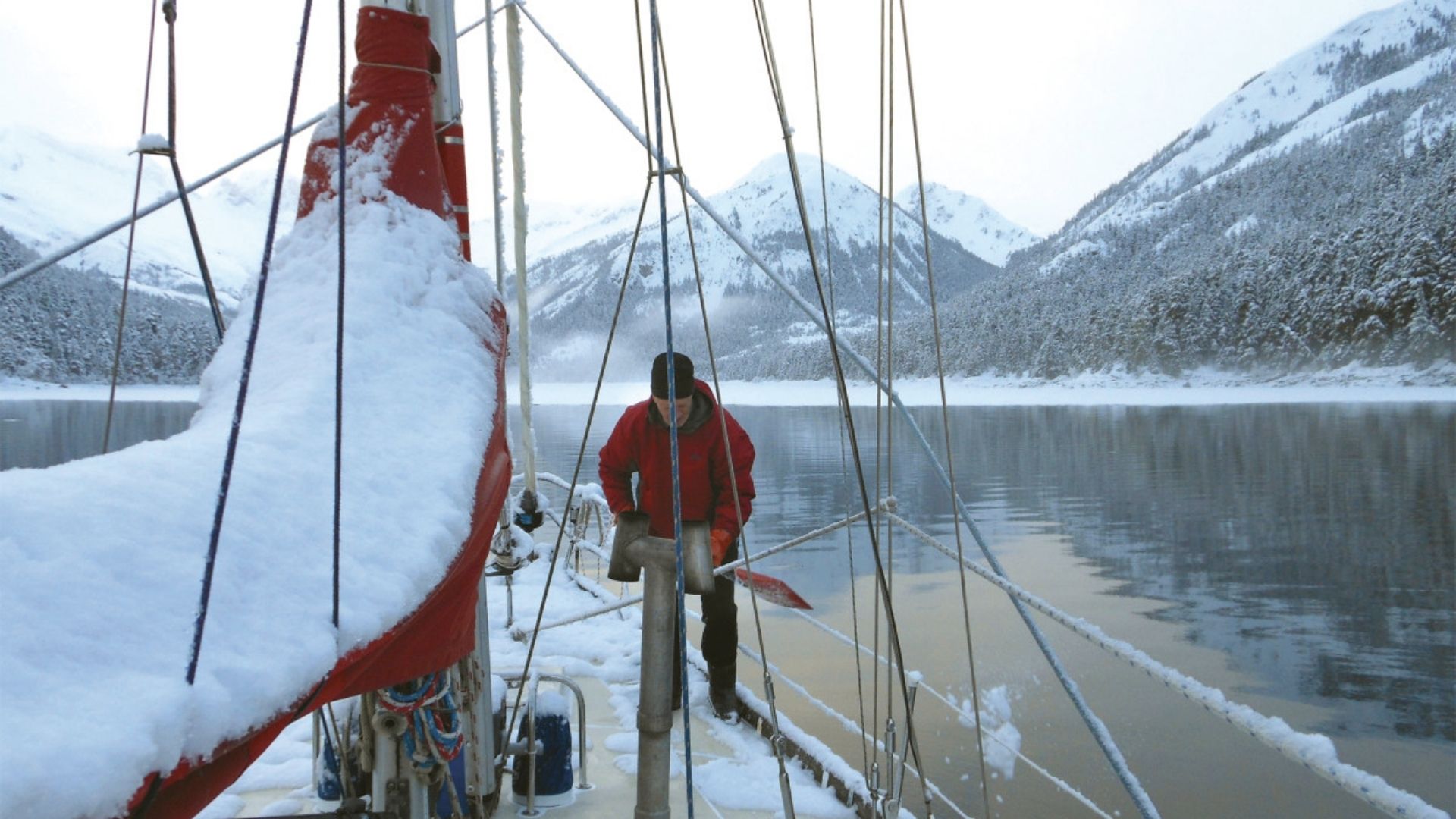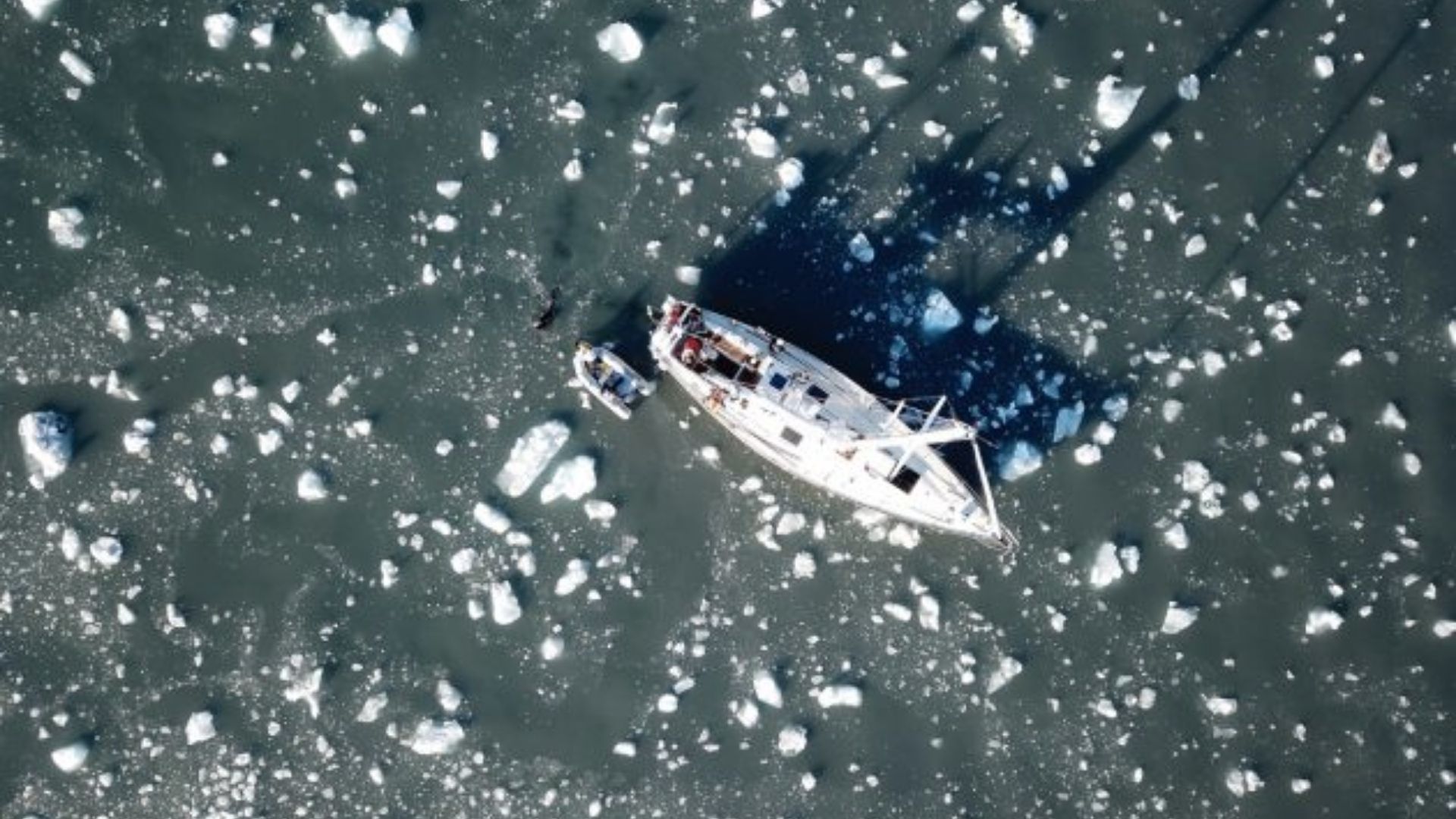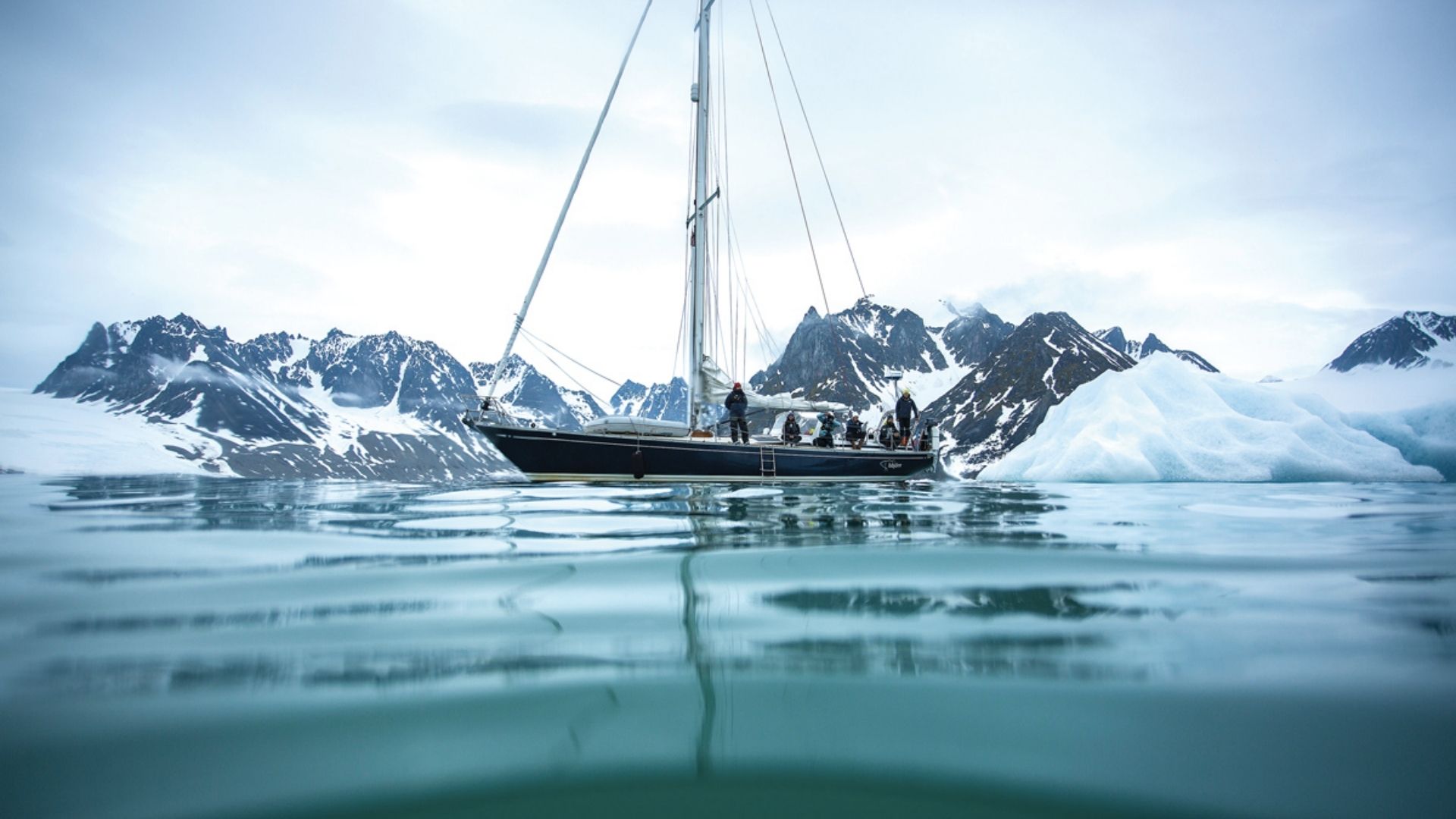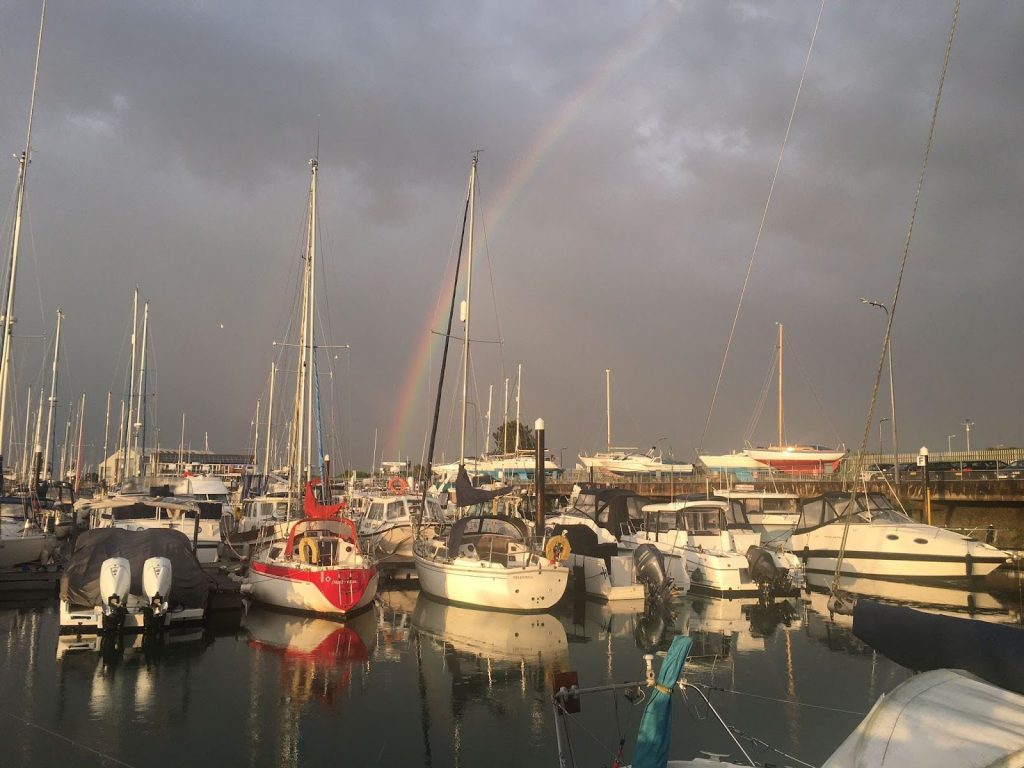Don't let the cold weather get in the way of a good day's cruising; winter sailing can be blissful. The low sun glistening against frost-tipped shorelines and quiet, peaceful waters make for great days out. You have to be quick to make the best of this fine weather when it arrives, but when it does, it's magical.
If you're thinking of keeping your boat on the water through winter, our guide features unmissable tips to navigate the colder weather. Many boat owners even choose to take on courses over winter because of the reduced rates and empty waters. If you're new to night sailing, for instance, the early sunsets do wonders providing long lessons. So, what do you need to tackle the winter weather? And what extras should you keep onboard through the season?

Enjoy sailing in winter. Photo: sailmagazine.com
Winter sailing UK - what to expect
Before you commit to winter sailing in the UK, it's good to know what to expect. First off, the weather is at its most variable. You need to be adaptable if the weather suddenly bites hard, forcing you to stay closer to the shore. There's very little you can do to change the forecast, but you can read up and plan accordingly. Shorter passages or mini-hops are best. If you are taking a longer stretch, set off earlier so that you arrive when it's still light. Never underestimate the bitterness of British waters in the dark. Staying warm, provisioned and maintaining your boat in tip-top winter condition are the best preparatory steps to take.
Although icy conditions are not so treacherous around the British Isles as in other countries, ice can still prove hazardous on hard surfaces. Slipways and decks get very icy indeed, especially in the early morning. Take care in marinas, berths and when (and if) navigating canals and locks. Saltwater can wash and remove ice from surfaces so long as it doesn't dip below -5°C. Always check and de-ice your boat before you set off, as you don't want a hazardous slip when you're far from the shore. Keep a bucket of ice water and a brush at hand for an easy solution, and always test out your boat by walking around your deck before setting sail.
Winter sailing gear - what to pack
When it comes to packing essentials, warm clothes and items are essential. Even if the temperature seems mild in the morning, this can shift in an instant or get progressively worse through the day. This is especially true for sailing on open water where there are no windbreaks. As you'll have to remain active, layering is essential. Opt for plenty of thin, thermal and heat-preserving materials rather than just a single bulky layer. Bright and lightweight wind and rain-proof jackets are essential for aiding movement and visibility onboard. The same goes for feet and hands too. Thermal or wool socks are ideal, as are typical winter garb like hats and insulated winter sailing gloves. Wet hands are a nightmare in winter, so look for gloves made from waterproof materials like neoprene for basic handling onboard.
Just as clothes are essential, so is food. Ensure a steady supply of warming snacks to sustain your time afloat. Winter favourites like thermal flasks can be filled with hot drinks or simple soups. Keep hot drinks in one and warm dishes in another. Hot chocolate is a favourite - but go easy on the coffee as it's a diuretic. You'd be surprised how versatile a good thermal food mug is, holding everything from hearty winter stews to pasta. The winter sun also requires a good pair of shades, preferably with wrap-around lenses. Other essentials that need to be kept dry onboard include lifejackets and portable heaters. While typical electric, oil or fan heaters are fine when shoreside, diesel or kerosene heaters will be needed when away from marinas. Just be careful about ventilation when using gas stove-like heaters and ensure you don't drain your battery with diesel heaters overnight.

Ice navigation from the sailboat Photo: zizoo.com
Winter sailing - preparing your boat
Your boat needs extra attention during the winter months, both if you're taking it out or putting it in storage. Before setting sail, you'll want to ensure that fuel and water tanks are fully topped up. While engines very rarely freeze, it's worth keeping specialised anti-freeze onboard just in case. Batteries need to be kept fully charged too. You can also consider switching from butane to propane gas. Propane has a lower freezing point for added assurance in seriously cold climates.
Prepping your boat to remain dry and safe is also essential. Wet lines are a nightmare when it's cold. Even worse, they can freeze and break. If you have a spare opportunity when you're moored or before travelling, dry them out. You don't want a wet cabin or cockpit, either. If you don't have a winter-ready cockpit or deck cushions, it's time to buy some. If you're planning to spend the night on your yacht or boat, ventilation will help against condensation. If you can, use a dehumidifier to reduce moisture. Simple chemical desiccants should work fine. You can also take steps to insulate your boat to avoid condensation. Window covers, headlining, and cockpit tents are great hacks for keeping condensation under wraps.
Winter sailing insurance and berthing
Many insurance companies require that swing mooring yachts be kept within a marina over the winter period. Check and manage your insurance over the winter period before planning anything. If you need to bring your yacht into a marina over winter, it may be worth shopping around. Winter berths can be just as affordable as hard-standing through winter. Reduced rates usually last from November through February.
If you're mooring your boat over the winter period, ensure that your berthing lines are fixed and weatherproof. Braided or multi plait lines made from nylon or polyester are best. You'll also want to check your fairleads to eliminate sharp and damaging edges. Fenders need to be properly inflated and concentrated at your boat's widest point. You should ideally remove sails and dodgers over winter. If your sails are wet, take them home and dry them out. Leaving them onboard to fester will promote mould.

Photo: yachtingworld.com
Winter sailing courses
If you're keeping your boat stored or moored over winter, it's still an optimal time to get out on the water. The cost of RYA training courses and qualifications are frequently reduced over the winter period. You'll also often be provided with free cold and wet weather gear. One of the main perks of winter courses is that you can spend more time practising night sailing skills. To progress through RYA courses, from Day Skipper to Yachtmaster Coastal, you need a certain number of night hours under your belt. In winter, that means you don't have to sail through late hours to tally up experience.
Exams are also less stressful in winter. Marinas are quieter, waters less busy, and there's generally more space to manoeuvre. This is a fine time to practice your parking skills or dreaded overboard recovery skills. For those less experienced, you'll come across fewer give-way situations through winter to build confidence without pressure. You can book your courses over several days or weekends, depending on your schedule. If you're looking to escape the UK for warmer waters abroad, winter is a great time to get your certification in order. An International Certificate of Competence (or ICC) is mandatory in many European countries.
Winter sailing holidays
From the Canary Islands to the Caribbean, there are plenty of warm winter sailing holidays for those in search of the sun. While Tenerife and Greece are some of the best winter sailing options closer to home, South America, South East Asia, and the Caribbean hold the warmest conditions in British winters. A popular option during the winter months is a flotilla holiday. Here, you'll be sailing with fellow yachts, discovering new locations and socialising along the way. Flotillas are led by crews to guide sailors around choice winter sailing grounds. Island-hopping in the Caribbean is a particularly exciting wintertime sailing break.
For those based in the UK, you can still have fun days out with sailing dinghies and yacht rentals. Many local sailing clubs across the UK offer discounted winter sailing rates. For typical yacht skippers, dinghies can be a great way to hone and test wind skills. A membership fee is required for many local clubs, but it's often cheap and even reduced over winter.
Enjoy winter sailing!
Sailing during the winter can be an immensely enjoyable and rewarding experience. With our guide above, you're set for a fun and hassle-free experience free of the common winter pitfalls. If we've enticed you to take to the water this weekend or test out your skills, drop your anchor here for tips
Related article: How to Winter your Boat


